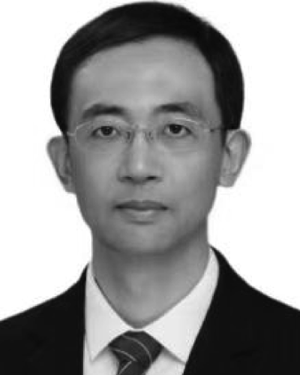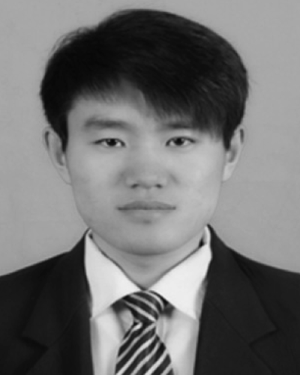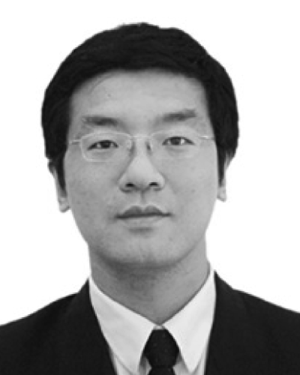Abstract:
In this article, we propose a parity-time (PT)-symmetric Fabry–Pérot microcavity to achieve high-sensitivity detection of gas concentration with refractive index ranging ...Show MoreMetadata
Abstract:
In this article, we propose a parity-time (PT)-symmetric Fabry–Pérot microcavity to achieve high-sensitivity detection of gas concentration with refractive index ranging from 10^{-{4}} to 10^{-{6}} owing to the nonlinear eigenfrequency splitting responses around the exceptional point (EP) of a non-Hermitian system. The transmission peak frequency splitting effect can be enhanced in the PT-symmetric phase of the proposed Fabry–Pérot sensor structure due to perturbation of the system state around the EP induced by the refractive index variation of the gaseous analytes of different concentrations. Calculation results indicate that gas refractive index sensitivity of the proposed sensor reaches 1.81\times 10^{{7}} GHz/RIU, which is significantly higher than that of the Fabry–Pérot structure with the same geometric parameters operating in the Hermitian regime. When methane/air mixture is injected into the microcavity of the Fabry–Pérot sensor, the change in methane concentration would lead to the refractive index variation in the gas mixture, and the pair of transmission eigenfrequency peaks would shift accordingly. Calculation results show that the methane concentration detection sensitivity is up to 28.03 GHz/vol.%. Moreover, the gas detection sensitivity can be further improved by reducing the number of periods {N} in the gain/loss doping region. Our proposed EP-induced sensitivity-enhanced PT symmetric Fabry–Pérot sensor possesses several desirable merits such as high sensitivity, compact size, low cost, and good compatibility with functional materials, which make it a promising candidate for potential applications in the detection of low-concentration gas component in mixture and recognition of gaseous analytes based on refractive index measurement.
Published in: IEEE Sensors Journal ( Volume: 24, Issue: 10, 15 May 2024)
Funding Agency:

Institute of Modern Optics, College of Electronic Information and Optical Engineering, Nankai University, Tianjin, China
Xiaoli Shan received the B.E. degree in optoelectronic engineering from Taiyuan University of Technology, Taiyuan, Shanxi, China, in 2022. She is currently pursuing the M.S. degree in optical engineering with the Institute of Modern Optics, Nankai University, Tianjin, China.
Her research interests mainly focus on whispering galley mode microcavities and exceptional points.
Xiaoli Shan received the B.E. degree in optoelectronic engineering from Taiyuan University of Technology, Taiyuan, Shanxi, China, in 2022. She is currently pursuing the M.S. degree in optical engineering with the Institute of Modern Optics, Nankai University, Tianjin, China.
Her research interests mainly focus on whispering galley mode microcavities and exceptional points.View more

Institute of Modern Optics, College of Electronic Information and Optical Engineering, Nankai University, Tianjin, China
Hao Zhang received the Ph.D. degree in optics from Nankai University, Tianjin, China, in 2005.
After obtaining the Ph.D. degree, he carried out research with Nankai University as a Lecturer. Following the one-year postdoctoral research supported by U.K./China Scholarships for Excellency program at the Imperial College London, London, U.K., in 2007, he came back to Nankai University. He is currently a Professor with the Ins...Show More
Hao Zhang received the Ph.D. degree in optics from Nankai University, Tianjin, China, in 2005.
After obtaining the Ph.D. degree, he carried out research with Nankai University as a Lecturer. Following the one-year postdoctoral research supported by U.K./China Scholarships for Excellency program at the Imperial College London, London, U.K., in 2007, he came back to Nankai University. He is currently a Professor with the Ins...View more

Institute of Modern Optics, College of Electronic Information and Optical Engineering, Nankai University, Tianjin, China
Tong Chen received the B.E. degree in optoelectronic engineering from Nankai University, Tianjin, China, in 2018, where he is currently pursuing the Ph.D. degree in optics with the Institute of Modern Optics.
His research interests are mainly focused on whispering gallery modes in microstructured optical fibers and its sensing applications.
Tong Chen received the B.E. degree in optoelectronic engineering from Nankai University, Tianjin, China, in 2018, where he is currently pursuing the Ph.D. degree in optics with the Institute of Modern Optics.
His research interests are mainly focused on whispering gallery modes in microstructured optical fibers and its sensing applications.View more

Institute of Modern Optics, College of Electronic Information and Optical Engineering, Nankai University, Tianjin, China
Miaoling Yang received the B.E. degree in optoelectronics engineering from Nanjing University of Science and Technology, Nanjing, Jiangsu, China, in 2021. She is currently pursuing the Ph.D. degree in optical engineering with the Institute of Modern Optics, Nankai University, Tianjin, China.
Her research interests mainly focus on fiber-optic sensing technology.
Miaoling Yang received the B.E. degree in optoelectronics engineering from Nanjing University of Science and Technology, Nanjing, Jiangsu, China, in 2021. She is currently pursuing the Ph.D. degree in optical engineering with the Institute of Modern Optics, Nankai University, Tianjin, China.
Her research interests mainly focus on fiber-optic sensing technology.View more

Institute of Modern Optics, College of Electronic Information and Optical Engineering, Nankai University, Tianjin, China
Southern Marine Science and Engineering Guangdong Laboratory, Zhuhai, China
Yuan Yao received the Ph.D. degree in optical engineering from Nankai University, Tianjin, China, in 2021.
He is currently a Lecturer with the Institute of Modern Optics, Nankai University. His research interests include fiber-optic space optical communication systems and optical fiber sensing technology.
Yuan Yao received the Ph.D. degree in optical engineering from Nankai University, Tianjin, China, in 2021.
He is currently a Lecturer with the Institute of Modern Optics, Nankai University. His research interests include fiber-optic space optical communication systems and optical fiber sensing technology.View more

Institute of Modern Optics, College of Electronic Information and Optical Engineering, Nankai University, Tianjin, China
Tianjin Key Laboratory of Optoelectronic Sensor and Sensing Network Technology, Nankai University, Tianjin, China
Wei Lin received the Ph.D. degree in optical engineering from Nankai University, Tianjin, China, in 2016.
From 2016 to 2019, he worked with the Department of Mechanical and Automation Engineering, The Chinese University of Hong Kong, Hong Kong, as a Postdoctoral Research Fellow. He is currently an Associate Professor with the Institute of Modern Optics, Nankai University. His research interests include novel fiber-optic de...Show More
Wei Lin received the Ph.D. degree in optical engineering from Nankai University, Tianjin, China, in 2016.
From 2016 to 2019, he worked with the Department of Mechanical and Automation Engineering, The Chinese University of Hong Kong, Hong Kong, as a Postdoctoral Research Fellow. He is currently an Associate Professor with the Institute of Modern Optics, Nankai University. His research interests include novel fiber-optic de...View more

Institute of Modern Optics, College of Electronic Information and Optical Engineering, Nankai University, Tianjin, China
Southern Marine Science and Engineering Guangdong Laboratory, Zhuhai, China
Tianjin Key Laboratory of Optoelectronic Sensor and Sensing Network Technology, Nankai University, Tianjin, China
Shaoxiang Duan received the Ph.D. degree in optical engineering from Nankai University, Tianjin, China, in 2023.
He is currently a Lecturer with the Institute of Modern Optics, Nankai University. His research interests are mainly focused on fiber-optic devices and systems for biosensing applications.
Shaoxiang Duan received the Ph.D. degree in optical engineering from Nankai University, Tianjin, China, in 2023.
He is currently a Lecturer with the Institute of Modern Optics, Nankai University. His research interests are mainly focused on fiber-optic devices and systems for biosensing applications.View more

Institute of Modern Optics, College of Electronic Information and Optical Engineering, Nankai University, Tianjin, China
Southern Marine Science and Engineering Guangdong Laboratory, Zhuhai, China
Tianjin Key Laboratory of Optoelectronic Sensor and Sensing Network Technology, Nankai University, Tianjin, China
Bo Liu received the Ph.D. degree in optics from Nankai University, Tianjin, China, in 2004.
After two years as a Postdoctoral Fellow with the Information Department, Nankai University, he was a Visiting Researcher with Aston University, Birmingham, U.K., from 2005 to 2006. He is currently a Professor with the Institute of Modern Optics, Nankai University. His major research interests include fiber sensors, fiber-grating-ba...Show More
Bo Liu received the Ph.D. degree in optics from Nankai University, Tianjin, China, in 2004.
After two years as a Postdoctoral Fellow with the Information Department, Nankai University, he was a Visiting Researcher with Aston University, Birmingham, U.K., from 2005 to 2006. He is currently a Professor with the Institute of Modern Optics, Nankai University. His major research interests include fiber sensors, fiber-grating-ba...View more

Institute of Modern Optics, College of Electronic Information and Optical Engineering, Nankai University, Tianjin, China
Xiaoli Shan received the B.E. degree in optoelectronic engineering from Taiyuan University of Technology, Taiyuan, Shanxi, China, in 2022. She is currently pursuing the M.S. degree in optical engineering with the Institute of Modern Optics, Nankai University, Tianjin, China.
Her research interests mainly focus on whispering galley mode microcavities and exceptional points.
Xiaoli Shan received the B.E. degree in optoelectronic engineering from Taiyuan University of Technology, Taiyuan, Shanxi, China, in 2022. She is currently pursuing the M.S. degree in optical engineering with the Institute of Modern Optics, Nankai University, Tianjin, China.
Her research interests mainly focus on whispering galley mode microcavities and exceptional points.View more

Institute of Modern Optics, College of Electronic Information and Optical Engineering, Nankai University, Tianjin, China
Hao Zhang received the Ph.D. degree in optics from Nankai University, Tianjin, China, in 2005.
After obtaining the Ph.D. degree, he carried out research with Nankai University as a Lecturer. Following the one-year postdoctoral research supported by U.K./China Scholarships for Excellency program at the Imperial College London, London, U.K., in 2007, he came back to Nankai University. He is currently a Professor with the Institute of Modern Optics, Nankai University. His research interests include micro/nanostructured fiber devices, novel fiber sensors, and fiber lasers.
Hao Zhang received the Ph.D. degree in optics from Nankai University, Tianjin, China, in 2005.
After obtaining the Ph.D. degree, he carried out research with Nankai University as a Lecturer. Following the one-year postdoctoral research supported by U.K./China Scholarships for Excellency program at the Imperial College London, London, U.K., in 2007, he came back to Nankai University. He is currently a Professor with the Institute of Modern Optics, Nankai University. His research interests include micro/nanostructured fiber devices, novel fiber sensors, and fiber lasers.View more

Institute of Modern Optics, College of Electronic Information and Optical Engineering, Nankai University, Tianjin, China
Tong Chen received the B.E. degree in optoelectronic engineering from Nankai University, Tianjin, China, in 2018, where he is currently pursuing the Ph.D. degree in optics with the Institute of Modern Optics.
His research interests are mainly focused on whispering gallery modes in microstructured optical fibers and its sensing applications.
Tong Chen received the B.E. degree in optoelectronic engineering from Nankai University, Tianjin, China, in 2018, where he is currently pursuing the Ph.D. degree in optics with the Institute of Modern Optics.
His research interests are mainly focused on whispering gallery modes in microstructured optical fibers and its sensing applications.View more

Institute of Modern Optics, College of Electronic Information and Optical Engineering, Nankai University, Tianjin, China
Miaoling Yang received the B.E. degree in optoelectronics engineering from Nanjing University of Science and Technology, Nanjing, Jiangsu, China, in 2021. She is currently pursuing the Ph.D. degree in optical engineering with the Institute of Modern Optics, Nankai University, Tianjin, China.
Her research interests mainly focus on fiber-optic sensing technology.
Miaoling Yang received the B.E. degree in optoelectronics engineering from Nanjing University of Science and Technology, Nanjing, Jiangsu, China, in 2021. She is currently pursuing the Ph.D. degree in optical engineering with the Institute of Modern Optics, Nankai University, Tianjin, China.
Her research interests mainly focus on fiber-optic sensing technology.View more

Institute of Modern Optics, College of Electronic Information and Optical Engineering, Nankai University, Tianjin, China
Southern Marine Science and Engineering Guangdong Laboratory, Zhuhai, China
Yuan Yao received the Ph.D. degree in optical engineering from Nankai University, Tianjin, China, in 2021.
He is currently a Lecturer with the Institute of Modern Optics, Nankai University. His research interests include fiber-optic space optical communication systems and optical fiber sensing technology.
Yuan Yao received the Ph.D. degree in optical engineering from Nankai University, Tianjin, China, in 2021.
He is currently a Lecturer with the Institute of Modern Optics, Nankai University. His research interests include fiber-optic space optical communication systems and optical fiber sensing technology.View more

Institute of Modern Optics, College of Electronic Information and Optical Engineering, Nankai University, Tianjin, China
Tianjin Key Laboratory of Optoelectronic Sensor and Sensing Network Technology, Nankai University, Tianjin, China
Wei Lin received the Ph.D. degree in optical engineering from Nankai University, Tianjin, China, in 2016.
From 2016 to 2019, he worked with the Department of Mechanical and Automation Engineering, The Chinese University of Hong Kong, Hong Kong, as a Postdoctoral Research Fellow. He is currently an Associate Professor with the Institute of Modern Optics, Nankai University. His research interests include novel fiber-optic devices based on functional materials and their applications.
Wei Lin received the Ph.D. degree in optical engineering from Nankai University, Tianjin, China, in 2016.
From 2016 to 2019, he worked with the Department of Mechanical and Automation Engineering, The Chinese University of Hong Kong, Hong Kong, as a Postdoctoral Research Fellow. He is currently an Associate Professor with the Institute of Modern Optics, Nankai University. His research interests include novel fiber-optic devices based on functional materials and their applications.View more

Institute of Modern Optics, College of Electronic Information and Optical Engineering, Nankai University, Tianjin, China
Southern Marine Science and Engineering Guangdong Laboratory, Zhuhai, China
Tianjin Key Laboratory of Optoelectronic Sensor and Sensing Network Technology, Nankai University, Tianjin, China
Shaoxiang Duan received the Ph.D. degree in optical engineering from Nankai University, Tianjin, China, in 2023.
He is currently a Lecturer with the Institute of Modern Optics, Nankai University. His research interests are mainly focused on fiber-optic devices and systems for biosensing applications.
Shaoxiang Duan received the Ph.D. degree in optical engineering from Nankai University, Tianjin, China, in 2023.
He is currently a Lecturer with the Institute of Modern Optics, Nankai University. His research interests are mainly focused on fiber-optic devices and systems for biosensing applications.View more

Institute of Modern Optics, College of Electronic Information and Optical Engineering, Nankai University, Tianjin, China
Southern Marine Science and Engineering Guangdong Laboratory, Zhuhai, China
Tianjin Key Laboratory of Optoelectronic Sensor and Sensing Network Technology, Nankai University, Tianjin, China
Bo Liu received the Ph.D. degree in optics from Nankai University, Tianjin, China, in 2004.
After two years as a Postdoctoral Fellow with the Information Department, Nankai University, he was a Visiting Researcher with Aston University, Birmingham, U.K., from 2005 to 2006. He is currently a Professor with the Institute of Modern Optics, Nankai University. His major research interests include fiber sensors, fiber-grating-based photonic devices, and interrogation systems.
Bo Liu received the Ph.D. degree in optics from Nankai University, Tianjin, China, in 2004.
After two years as a Postdoctoral Fellow with the Information Department, Nankai University, he was a Visiting Researcher with Aston University, Birmingham, U.K., from 2005 to 2006. He is currently a Professor with the Institute of Modern Optics, Nankai University. His major research interests include fiber sensors, fiber-grating-based photonic devices, and interrogation systems.View more


